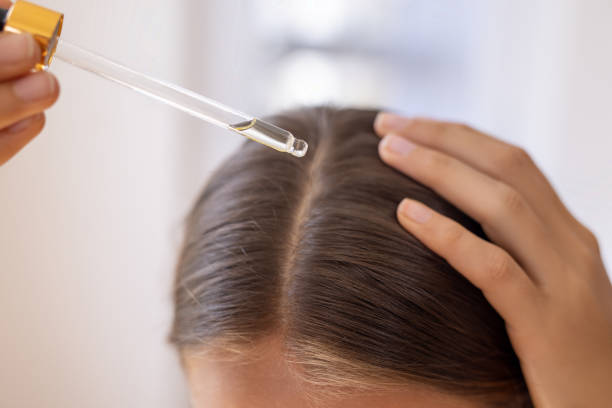Hair loss, a common issue affecting both men and women, can result from a variety of factors such as genetics, stress, poor nutrition, hormonal imbalances, and certain medical conditions. While there are effective treatments available—like medications, topical applications, and dietary improvements—addressing hair loss once it occurs can be challenging. That’s why prevention is key. Taking steps to maintain healthy hair and minimize risk factors can reduce the chances of significant hair thinning or shedding, helping you preserve both your locks and confidence.
Ways to Prevent Hair Loss
- Adopt a Balanced, Nutrient-Rich Diet
Eating a variety of nutrient-dense foods can support hair health. Consuming sufficient protein, which is essential for hair structure, along with iron, zinc, and vitamins D and B-complex, helps nourish the scalp and hair follicles. Adding omega-3 fatty acids from sources like fish and nuts can further improve scalp health and reduce inflammation. - Handle Hair Gently
Avoid practices that strain or damage your hair. Refrain from pulling your hair too tightly in styles like ponytails or braids, which can cause traction alopecia. Limit the use of heat tools like flat irons and curling wands, and always use heat protectants when styling. Opt for gentle, sulfate-free shampoos and conditioners, and avoid harsh chemical treatments like bleaching and straightening whenever possible. - Manage Stress Effectively
Stress can disrupt the natural hair growth cycle, leading to temporary shedding. Practicing stress-reducing techniques like yoga, meditation, and regular exercise can help balance your mental and physical health, reducing the likelihood of hair loss. Getting adequate sleep is also essential, as poor sleep quality can exacerbate stress and negatively affect hair health. - Maintain a Healthy Scalp
A clean and well-moisturized scalp promotes optimal hair growth. Regularly washing your scalp with mild shampoos helps prevent buildup of dirt and oils, which can clog hair follicles. Treat scalp conditions like dandruff or fungal infections promptly using medicated shampoos or topical treatments. Scalp massages can also improve blood circulation, delivering nutrients to hair follicles. - Avoid Smoking and Limit Alcohol Consumption
Smoking can restrict blood flow to the scalp, reducing oxygen and nutrient delivery to hair follicles. Excessive alcohol intake can dehydrate the body and disrupt nutrient absorption, both of which can weaken hair health. By avoiding smoking and moderating alcohol consumption, you create a healthier environment for hair growth. - Stay Hydrated
Proper hydration is vital for overall health, including hair health. Drinking plenty of water helps maintain moisture levels in the scalp and hair strands, preventing dryness and breakage. A hydrated body supports better nutrient delivery to the hair follicles. - Seek Regular Medical Check-Ups
Certain medical conditions, such as thyroid disorders or autoimmune diseases, can contribute to hair loss. Regular health check-ups can help detect these issues early, enabling timely treatment to prevent hair loss from progressing. If you notice persistent shedding or thinning, consult a dermatologist or trichologist for expert advice.
Conclusion
Preventing hair loss is an achievable goal when you take proactive steps to protect and care for your hair. By focusing on a healthy lifestyle, gentle hair care practices, stress management, and regular health monitoring, you can minimize the risks of hair loss and maintain strong, vibrant hair. Remember, prevention is always better than cure, so start incorporating these habits today for

